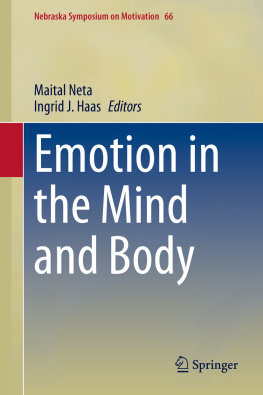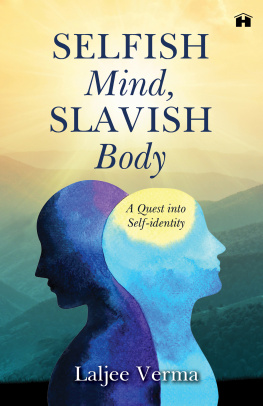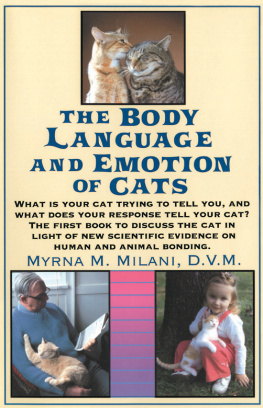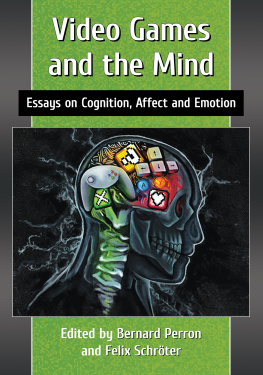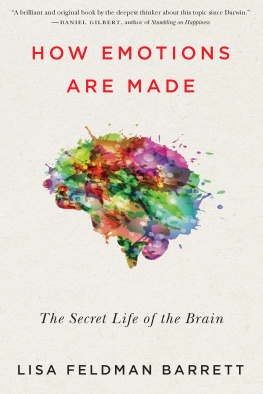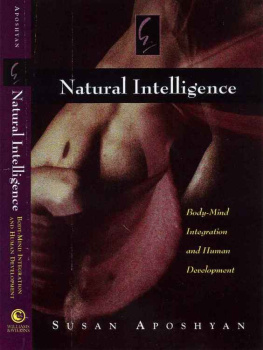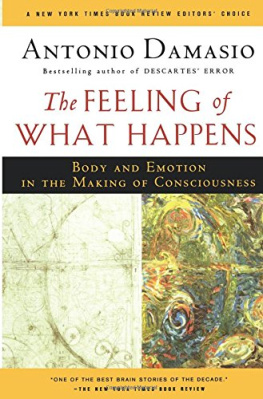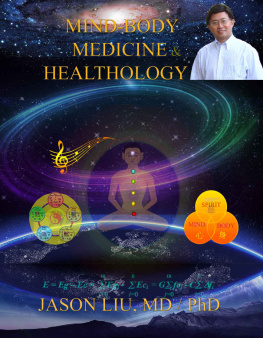Maital Neta - Emotion in the Mind and Body
Here you can read online Maital Neta - Emotion in the Mind and Body full text of the book (entire story) in english for free. Download pdf and epub, get meaning, cover and reviews about this ebook. year: 2019, publisher: Springer International Publishing, genre: Computer. Description of the work, (preface) as well as reviews are available. Best literature library LitArk.com created for fans of good reading and offers a wide selection of genres:
Romance novel
Science fiction
Adventure
Detective
Science
History
Home and family
Prose
Art
Politics
Computer
Non-fiction
Religion
Business
Children
Humor
Choose a favorite category and find really read worthwhile books. Enjoy immersion in the world of imagination, feel the emotions of the characters or learn something new for yourself, make an fascinating discovery.
- Book:Emotion in the Mind and Body
- Author:
- Publisher:Springer International Publishing
- Genre:
- Year:2019
- Rating:3 / 5
- Favourites:Add to favourites
- Your mark:
- 60
- 1
- 2
- 3
- 4
- 5
Emotion in the Mind and Body: summary, description and annotation
We offer to read an annotation, description, summary or preface (depends on what the author of the book "Emotion in the Mind and Body" wrote himself). If you haven't found the necessary information about the book — write in the comments, we will try to find it.
Emotion in the Mind and Body — read online for free the complete book (whole text) full work
Below is the text of the book, divided by pages. System saving the place of the last page read, allows you to conveniently read the book "Emotion in the Mind and Body" online for free, without having to search again every time where you left off. Put a bookmark, and you can go to the page where you finished reading at any time.
Font size:
Interval:
Bookmark:
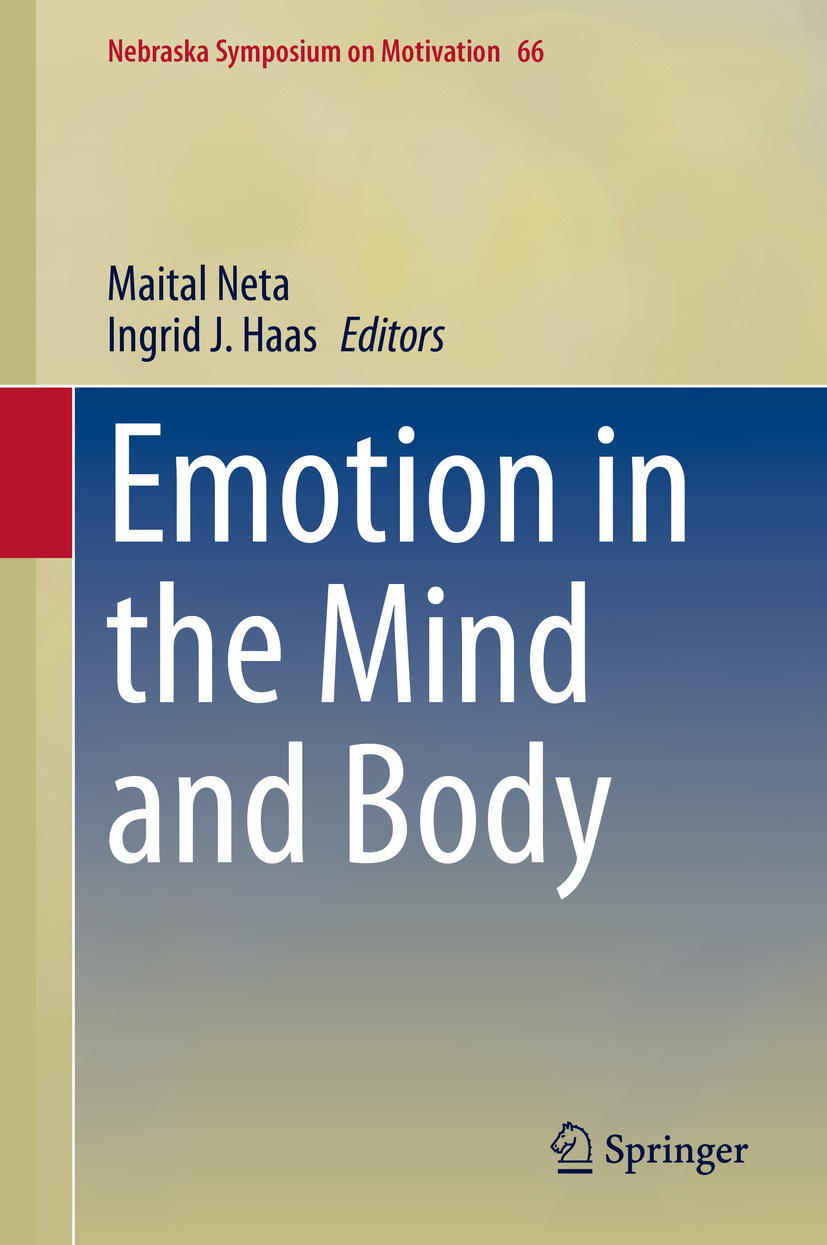
More information about this series at http://www.springer.com/series/7596

This Springer imprint is published by the registered company Springer Nature Switzerland AG
The registered company address is: Gewerbestrasse 11, 6330 Cham, Switzerland
We are pleased to offer this volume from the 66th Nebraska Symposium on Motivation.
This year the volume editors are Maital Neta and Ingrid Haas. In addition to overseeing the development of this book, the volume editors coordinated the 66th Symposium, including selecting and inviting the contributors. I would like to express my appreciation to Professors Neta and Haas and the contributors for a stimulating meeting and an excellent series of papers on emotion, an important factor in behavior, motivation, and many forms of psychopathology.
This symposium series is supported by funds provided by the Chancellor of the University of NebraskaLincoln, Harvey Perlman, and by funds given in memory of Professor Harry K. Wolfe to the University of Nebraska Foundation by the late Professor Cora L. Friedline. We are also grateful for the University of Nebraska Foundations support via the Friedline bequest. This symposium volume, like those in the recent past, is dedicated in memory of Professor Wolfe, who brought psychology to the University of Nebraska. After studying with Professor Wilhelm Wundt in Germany, Professor Wolfe returned to his native state to establish the first undergraduate laboratory in psychology in the nation. As a student at the University of Nebraska, Professor Friedline studied psychology under Professor Wolfe.
From the moment we start our day, our lives are saturated with affective value (e.g., disappointment at the ringing of an alarm clock, enjoyment in that first cup of hot coffee). In this way, emotion is a lens through which we perceive and interact with the world, coloring our day-to-day experiences and driving our behavior. When we encounter new information (e.g., novel people, sounds, flavors), we readily sort this information into emotional valence categories : good or bad, reward or punishment, approach or avoid. This task of understanding and processing our emotional responses can have an enormous impact on many aspects of our lives, including shaping our social relationships, our long-term goal pursuit (e.g., occupational choices, efficacy expectations), and more. The field of affective science examines the nature of our emotional experience , expression , and the mechanisms with which we regulate these processes.
Emotion, like motivation , is derived from the Latin word movere (to move) and is one of the primary forces that activates or energizes our behaviors. Both emotion and motivation have important influences on many social and cognitive processes and can shape the way we navigate our social world. For example, emotion can change ones sensory and perceptual experiences (Balcetis & Dunning, ).
As is easily observed by following current events, emotion also has important implications for political behavior , as recent research has shown that emotion can contribute to political polarization, attraction to fake news, and the spread of misinformation. For example, recent research using Twitter data demonstrated that the spread of information online is both highly polarized and faster when moral content is combined with emotional words (Brady, Wills, Jost, Tucker, & Van Bavel, ), leading some to conclude that political ideology may have biological origins. Thus, the study of emotion has important implications for society more broadly. In this volume, we provide a brief sampling of some of the areas of research that have been dedicated to elucidating the role of emotion and motivation in shaping human behavior .
Throughout history, scholars have been asking questions about the role of emotion in human experience and have approached this work in different ways. Philosophers like David Hume wondered about the relationship between emotion and reason (Hume, ). Experimental psychology adopted an empirical approach to studying emotion that was largely inspired by these earlier questions. Relying largely on empirical observation, experimental manipulation, and self-report, psychologists observe how people and animals respond to emotional situations and ask people directly about their emotional experiences .
Font size:
Interval:
Bookmark:
Similar books «Emotion in the Mind and Body»
Look at similar books to Emotion in the Mind and Body. We have selected literature similar in name and meaning in the hope of providing readers with more options to find new, interesting, not yet read works.
Discussion, reviews of the book Emotion in the Mind and Body and just readers' own opinions. Leave your comments, write what you think about the work, its meaning or the main characters. Specify what exactly you liked and what you didn't like, and why you think so.

